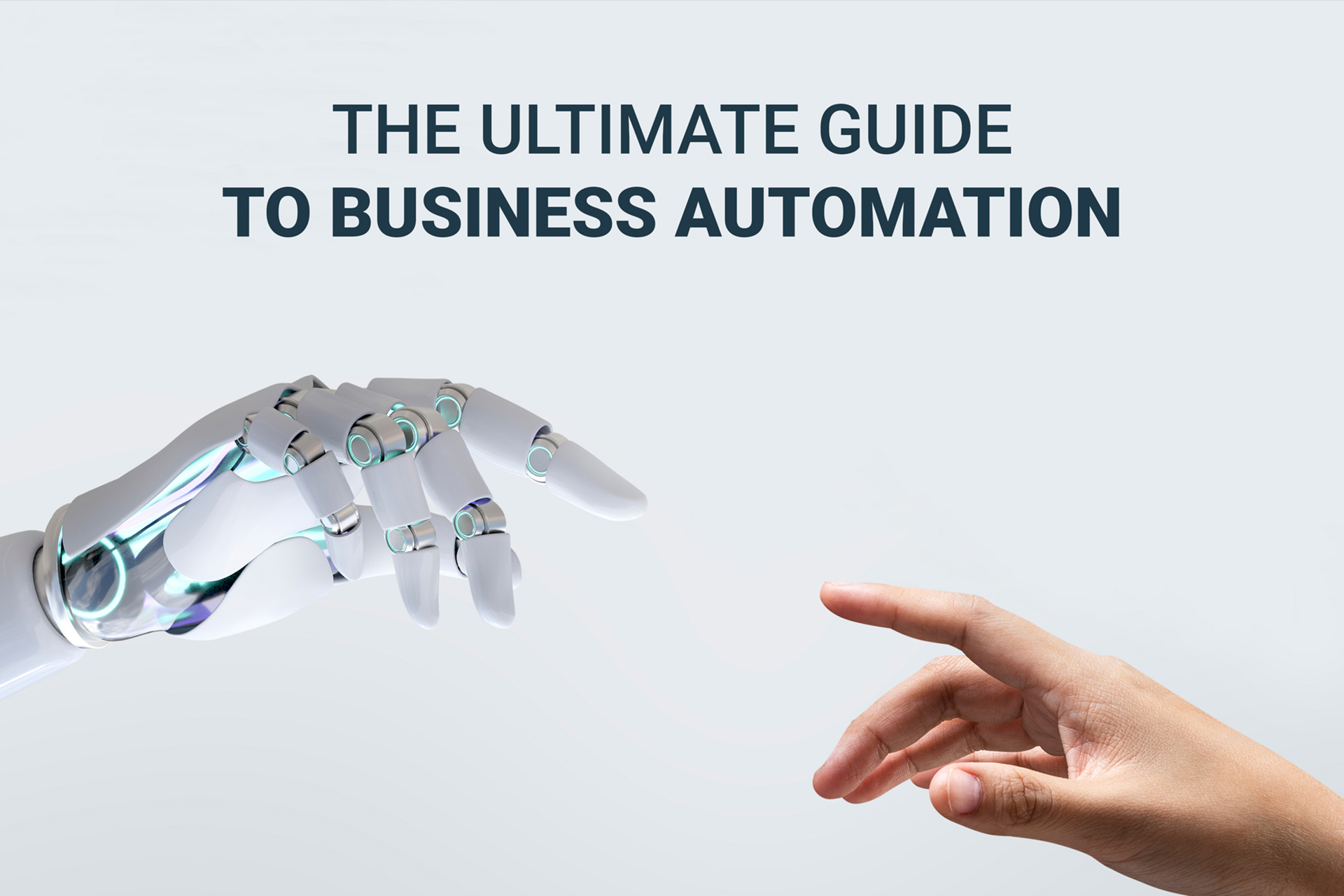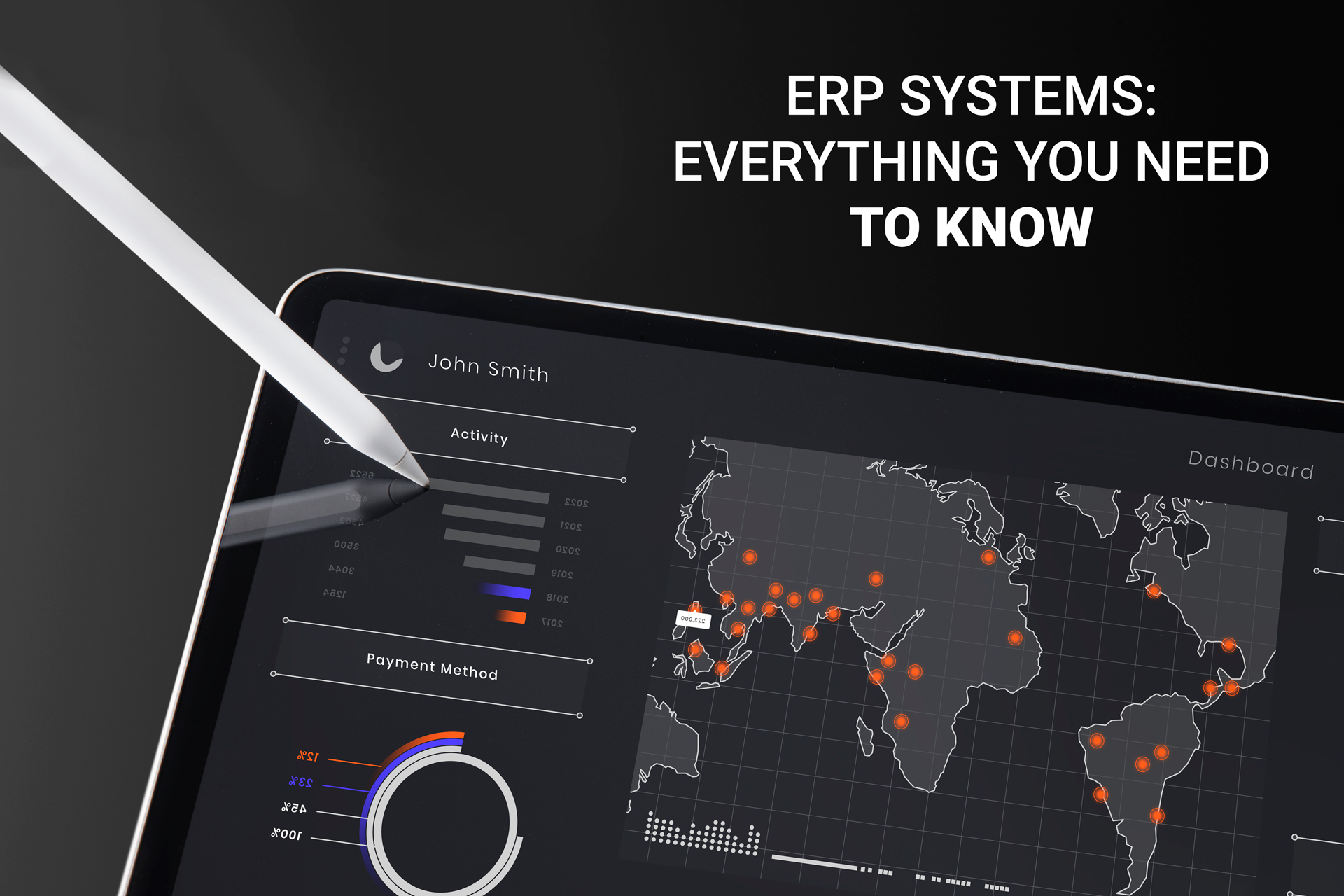The Ultimate Guide to Business Automation: What is It, Why is it Important, How Does it Work?

We live in a world of increasing automation. From self-driving cars to automatic dishwashers, there are many areas where machines have made our lives easier. That said, many organizations are still not sure why they need business automation, or where to start.
This blog post should clear up any confusion about these topics, by answering key questions:
- What is business automation?
- How does business automation work?
- What are the pros and cons of business automation?
The goal is to cover all you need to know about business automation, so you can implement it in your own company.
What is Business Automation, and Why Does it Matter?
Business automation is using technology to automate workflows, to improve efficiency, accuracy, and profitability. In this case, the term “automation” refers to the use of computers to perform tasks that previously needed human interaction. This way, you can complete tasks much faster and more accurately.
Business automation improves organizational performance. It applies to several areas, such as accounting, marketing, compliance tracking, and customer service. Automation also allows us to complete tasks more efficiently without sacrificing accuracy.
Many types of software automate specific business functions. From customer relationship management (CRM) software to email marketing applications, technology improves an organization’s productivity, allowing them to handle larger workloads effectively. As a result, the work requires fewer people and lower operating costs, leading to larger profit margins.
Why is Automation Important?
Today’s business environment has become more complex. Employees are finding it more difficult to grow within their roles because they spend so much time on tasks that don’t require manual intervention.
Consider the routine tasks that fill up most small business managers’ days. Some of these include managing inventory, keeping customer information in databases, and creating invoices for clients. These are the tasks you want to spend your time on but can’t because they keep piling up.
Business automation saves time and reduces busy work, so you can focus on growing your business. As a result, your clients receive better customer service and faster responses, which leads to higher long-term retention rates.
How Does it Work?

Some commonly used applications in business automation include:
- Robotics – This is when machines automate tasks that were traditionally done by humans. For example, many car manufacturers are using robotics to paint vehicles, a task that doesn’t require human interaction.
- Software Bots – Also known as chatbots, these are computer programs that use natural language processing to copy the behavior of humans. They can automate certain tasks such as customer service or lead capturing.
- Predictive Analytics – This involves using machine learning and related tools to predict consumer behavior. Predictive analytics can determine which items to stock in a shop by observing how a product sold in the past, and the buying patterns for its core demographic.
How Can Business Automation Work For My Company?
We mentioned there was no “one size fits all” solution for automating business processes. Each company needs something different to run smoothly. This varies by the company’s size, industry, and other factors. To start, consider mapping out areas in your company that need a business process automation tool. For example:
- Customer Relationship Management (CRM)
- Order Processing
- Accounts Payable/Receivable
- Human Resources Management (HRM)
- Business Intelligence Reporting
Once you’ve identified which processes you can improve, you can start narrowing down choices to find the right business automation software.
How to Choose the Perfect Business Automation Tool
The following are some key questions you should ask yourself about business automation software before signing a software contract:
- What type of business is my company? (manufacturing, warehouse, transportation, retail?)
- How many employees are in my organization?
- Which data sources do my business use for operations and decision-making? (spreadsheets, email platforms like Mailchimp)
- Is security an issue for sharing information between departments and/or third parties? (security concerns could be why your teams don’t share information with each other)
- Are we integrating new business automation software into an existing system? (Salesforce, Quickbooks, Microsoft Dynamics CRM)
Pros and Cons of Business Automation
These are the benefits of business automation:
- Increased productivity from the inherent speed of machine calculations
- Fewer errors, from the inherent precision of artificial intelligence
- Improved customer service due to increased efficiency and accuracy
- More time to focus on strategic tasks and overarching goals
- Easier collaboration between team members and third parties
- Ability to complete routine business tasks at any time, without interruption from employees’ schedules
Will my job be replaced by a machine?
Many people worry that as more jobs become automated manual labor positions will disappear. This is unlikely since robots do not possess creativity or adaptability, skills at which humans excel.
Some tasks that automation completes more efficiently will take a different role in your organization. For example, an automated order processing system would free up customer service staff from managing orders manually. Some jobs might become unnecessary while others emerge, as the business continues to evolve.
Challenges Involved with Setting Up a Business Automation System?
Before setting up business automation, you have to strongly consider its requirements for time and money. Business automation requires a certain level of expertise from the people who will set up the automated system.
Hiring external professionals might be necessary for successful implementation if you don’t have the expertise in-house. External help does come at a cost, however, so shop around before deciding.
It is normal for any software implementation to face some trial and error. Keep this in mind if you run into challenges trying to automate your business.
You’ll also want to consider hardware/software investments, human resources movement, and knowledge transfers between employees who will use the new system. You can take measures to verify these items, or you can hire someone to do it for you.
Which Industries Can Benefit from Business Automation?

Technological advances have made business automation more accessible for small and mid-sized companies.
Automation allows businesses to respond more quickly to trends and demands. They can use this advantage to stay relevant in their industry, increase the accuracy and efficiency of their work, and improve resource management.
Typical Use Cases for Business Automation Technology
These are some common applications for business automation technologies across various industries:
- Retail businesses often struggle with high staff turnover, so it’s critical for them to automate as much work as possible. Automated systems help retailers keep track of stock, detect discrepancies, and can even forecast needs based on sales data.
- Manufacturing is another industry primed for automation. Specifically, business manufacturers have automated many of their production procedures, like automatic purchase orders, machine maintenance scheduling, and quality control checks.
- The transportation sector is quickly realizing the benefits of automated systems when it comes to improving efficiency and reducing costs. For example, many trucking companies use GPS tracking systems to optimize routes and dispatch drivers. This saves time and reduces the number of miles driven, which in turn lowers fuel costs and pollution levels.
- For warehousing, automated systems can keep track of stock, schedule workers, for specific tasks, and manage shipping schedules. For example, an automated system can create a digital copy of a warehouse to test scenarios without permanent changes to the facility. A company could use this to assess what would happen if they increased or decreased their workforce by 25%.
- The accommodation industry benefits from business automation by reducing the number of manual errors and drastically cutting wait times by allowing customers to make their flight and hotel bookings online. Tourists looking for personalized experiences can use automated technology like chatbots and virtual assistants to specify their wants and needs. Guests can simply swipe their payment cards at electronic terminals in automated check-in kiosks, while they receive an email with a personalized room key after they arrive.
Business Automation is the Future
In today’s fast-paced world, customers expect businesses to have an online presence and be available all hours of the day. To achieve this, companies are turning towards business automation technologies like chatbots to help them meet customer needs while saving money without adding personnel. Business automation is important because it represents a critical shift in how businesses work. Companies have moved away from repetitive and time-consuming manual tasks toward automated systems that keep us all productive.
If you’re looking for a business automation system that can help improve your organization’s efficiency, feel free to contact us today. We offer a wide range of solutions that are a perfect fit for any business–large or small. Let us show you how our systems can help streamline your operations and improve your bottom line.




 The Ultimate Guide to Business Automation: What is It, Why is it Important, How Does it Work?
The Ultimate Guide to Business Automation: What is It, Why is it Important, How Does it Work?  Internet of Things (IoT): A Beginner’s Guide
Internet of Things (IoT): A Beginner’s Guide  ERP Systems: Everything You Need to Know
ERP Systems: Everything You Need to Know  Unlocking Knowledge: Navigating the Future of Education with AI in Learning Applications
Unlocking Knowledge: Navigating the Future of Education with AI in Learning Applications  Crafting Exceptional Experiences: Harnessing Design Thinking for UI/UX Problem Solving
Crafting Exceptional Experiences: Harnessing Design Thinking for UI/UX Problem Solving
William Mitchell
September 10, 2022 at 9:57 pm |
Hello! I simply want to give you a big thumbs up for the excellent information you have got here on this post. Ill be returning to your website for more soon.
Mark Valdez
September 12, 2022 at 11:01 am |
Thanks for your blog, nice to read. Do not stop.